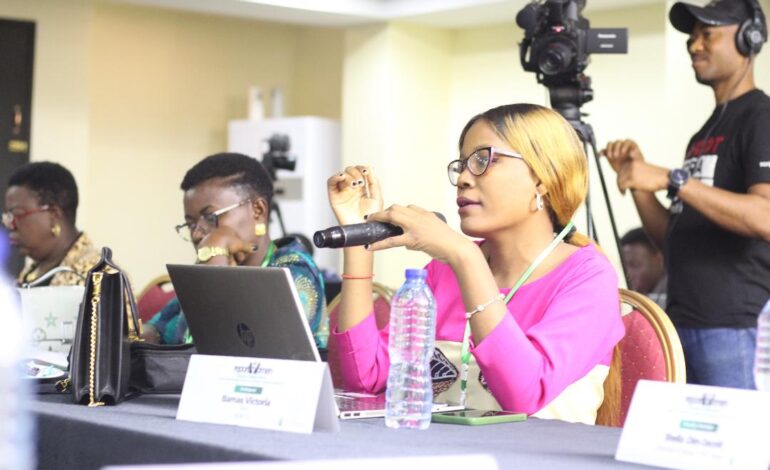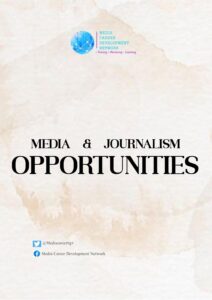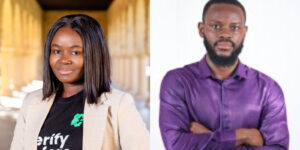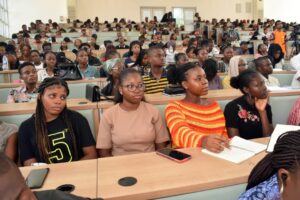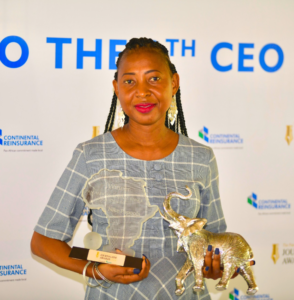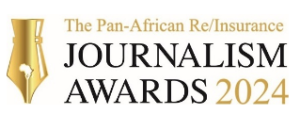Like on the first day of the Female Reporters Leadership Programme by the Wole Soyinka Centre for Investigative Journalism, more insights on excelling as female journalists were shared by facilitators and past fellows.
You need to always approach your reporting from human rights perspectives. – Rommy Mom; President, Lawyers Alert in Nigeria @RommyMom1 @lawyersalertng
Do not lose sight of the fact that the African Charter is a local law and it is part of our constitution. – Rommy Mom; President, Lawyers Alert in Nigeria @RommyMom1 @lawyersalertng
Promoting gender balance affirms the right of every citizen to participate in government. We need to shift the narrative and empower the girl child. – Rommy Mom; President, Lawyers Alert in Nigeria @RommyMom1 @lawyersalertng
In gender advocacy, women do not need to be the ones speaking. It might be more successful to involve some men who understand the issues. – Abiola Akiyode-Afolabi, Executive Director, Women Advocates Research and Documentation Centre @abiolaak @womenadvocate
I know we think that there must be some people up there. No, you are the role model. You can influence change in the newsroom. – Abiola Akiyode-Afolabi, Executive Director, Women Advocates Research and Documentation Centre @abiolaak @womenadvocate
Social revolution is the only way to fight oppression. Changing the newsroom can help in changing the larger world, and the participation of the media is very critical in this. Your work is to deal with the superstructures. – Abiola Akiyode-Afolabi, Executive Director, Women Advocates Research and Documentation Centre @abiolaa @womenadvocate
As an investigative journalist, you are going to run into trouble if you don’t have grit and are not meticulous. There are so many people who want to stop you; these people are powerful and will try to get to you in different ways. – Stella Din-Jacob, Director of News TVC News @sdin_jacob
Here are some important ways to do your best with investigative stories and stay safe: you must understand your terrain, fact-check every information, plan ahead, and understand the people you are up against. – Stella Din-Jacob, Director of News TVC News @sdin_jacob
Investigative Journalism is not for the faint-hearted. – Stella Din-Jacob, Director of News TVC News @sdin_jacob
What I did with my #ReportWomen #FRLP fellowship: Testimonies by fellows from previous cohorts.
Emiene Erameh @eomoro, (2018 fellow): “The fellowship was a turning point in my journalism career. With my former employer, I rose to become Deputy Head of News. I have also published a women-focused online magazine; ‘All Women Media’.”
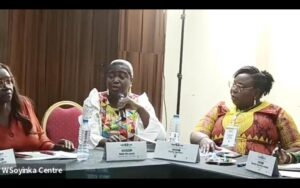
Kofoworola Belo-Osagie, Commissioning Editor, TC_Africa @KofoBelo (2021 fellow): “I secured an international job following my #ReportWomen #FRLP fellowship exposure in 2021. As part of the fellowship, I did a sex-for-grade story from the lecturers’ perspective. The fellowship has contributed immensely to my success story and has motivated me to step up and take charge within my sphere of influence.”
READ ALSO: Insights from 2023 Female Reporters Leadership Programme (1)
